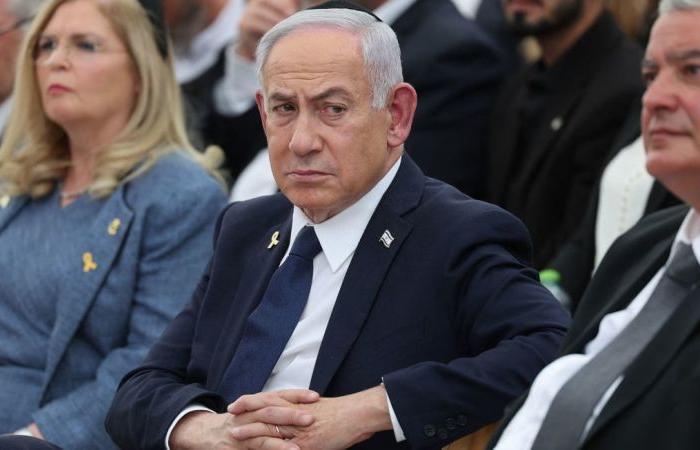
CNN
—
Israel Benjamin Netanyahu’s prime minister kept appearances for almost 19 months: the liberation of the hostages and the defeat of Hamas, he insisted, occupied the top of the pyramid of Israel’s war objectives.
Even when members of their right -wing ruling coalition threatened to overthrow their government if it accepted a ceasefire and an agreement on the release of hostages. Even while he put last minute obstacles to reach that agreement. And even while accumulated evidence that Israel’s military operations had caused, both directly and indirectly, the death of Israeli hostages. In the midst of all those contradictions, Netanyahu insisted that both objectives were equally important.
But not anymore. Now, Netanyahu blatantly prioritizes the war – and the survival of his government – on the fate of the 59 hostages that still remain in Gaza and the will of most Israelis.
A week after qualifying the defeat of Israel’s enemies as the “supreme objective” of war, Netanyahu converts that rhetoric into action: he called tens of thousands of reservists to attack, take and occupy wide strips of Gaza, in what the prime minister calls the “last movements” against Hamas.
The Israeli authorities claim that the plan will not be implemented immediately, which gives Hamas at least a week and a half to achieve another limited agreement of hostages and high the fire according to the terms of Israel; Some insist that it is government preference. The deadline, they claim, is the conclusion of the visit of the US president Donald Trump to the region next week. But it is unlikely that this agreement materializes within that period, and these are no longer vain threats.
The right -wing ministers who have sabotaged high fire agreements and who have long requested the conquest of Gaza now celebrate, considering the newly approved plans as the first step towards their vision of occupying and, ultimately, annexing the enclave. The Minister of Finance, Bezalel Smotrich, now promises that there will be no “withdrawal of the territories that we have conquered, not even in exchange for hostages.”
For Netanyahu, this means political security: to rule out the repeated threats of Smotrich and the Minister of national Security, Itamar Ben Gvir, to leave the government and force new elections, keeping it in the position of Prime Minister.
It also means going against the will of a clear majority of Israelis (56 % according to the Israeli Kan 11 and 69 % channel according to channel 12), which support an agreement to end the war in exchange for the release of all the remaining hostages.
Hamas has repeatedly declared his disposition to an integral agreement, hoping to save his position of power in Gaza, but the Israeli government has rejected any end of the war that allows the group to remain armed and governing the enclave.
For the families of Israeli hostages, Netanyahu’s decision has been a hard blow, because they fear not only delay the return of their loved ones, but put them in danger.
-“It seems that the Government has prioritized Hamas’ defeat on the rescue and return of hostages, because for this it would be necessary to stop war,” said Anat Anat Internetz, mother of Israeli captive soldier Matan Angut. “The ministers are sending soldiers to danger zones and exposing the hostages to a higher risk, when the only thing that was needed was a pause to develop a true strategic plan. What is happening now is a war driven by revenge and conquest, not by a genuine desire to save lives.”
“It does not reflect the will of the people or the Jewish heart,” he said.
The extension of the Israeli siege in Gaza will not only put hostages at risk of more Israel bombs. Hamas has repeatedly stated that he will execute the hostages if the Israeli forces approach their positions, a threat that he fulfilled last August by murdering six of them. Israel’s plan to displace almost the entire population of Gaza to the southern zone, while continuing to deprive food to the rest of the humanitarian aid enclave, it could also endanger the access of hostages to the already limited foods they receive.
It should be noted that, in the days before the Israeli security cabinet gave green light to the expansion of its war, Sara, wife and nearby advisor to Netanyahu, tried to minimize the number of living hostages. When Netanyahu said last week that “up to 24” hostages held in Gaza are still alive, his wife intervened: “Less.” Their comments reflected what Israeli officials declared CNN as “serious concerns” about three of those hostages, the same language used above to refer to hostages whose death was finally confirmed.
For the population of Gaza, Netanyahu’s decision threatens with a catastrophe that goes beyond the serious humanitarian crisis that already ravages the besieged territory. The expansion of the Israeli attack guarantees another massive forced displacement of Palestinians, more death and destruction, and the continuous use of hunger as a weapon of war.
Although Netanyahu’s decision to prioritize Hamas’s destruction on the fate of the remaining hostages becomes evident, the ability of Israeli forces to achieve their objectives against the group remains uncertain.
More than 52,000 people have died in Gaza for the actions of Israel, according to the Ministry of Health of the Enclave, since October 7, 2023 when Hamas attacked.
The factors that have allowed Hamas to survive and stay in power in Gaza after almost 19 months of war persist, and Israeli national security analysts are skeptical that tens of thousands of additional soldiers radically change the dynamics of the conflict. Send them with the aim of occupying large areas of Gaza could increase Israeli military casualties, with the risk of sinking the army for years in a counterinsurgency quagmire.
Maybe that’s why Netanyahu did not launch head along the path he has now chosen.
Trump’s return to power allowed him to free himself from the restrictions imposed by President Joe Biden during the first 15 months of his war. But although Trump and his administration made it clear that they would not try to limit the military actions of Israel in Gaza, Netanyahu did not immediately undertake the expansion of the war that their ultra -right allies claimed.
However, at a crucial moment, he has made a decision that Gaza will shake and change forever the fate of more than two million Palestinians and 59 hostages.





